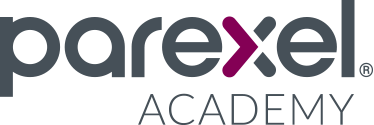Placeholder Image
Business English for Clinical Trials
To learn more about our programs and customized training options, or request a free proposal, contact us to discuss your needs and desired goals.
Course overview
This is an in-house seminar designed for companies / institutions working within the biopharmaceutical research industry, who would like to train their internal staff on the English specific to clinical trials. To save travel costs for your employees the seminar can be held at the location of your choice.
Parexel Academy can arrange these in-house seminars following either our standard seminar programs or tailored to your particular needs. From experience, we consider that the optimum length for this seminar is 2 days.
Course details
Aim
Participants
Your benefits
Program Overview
Contact
Aim
The operational language of clinical research is English. It is not just protocols and case report forms which are in English: most e-mail correspondence, telephone conferences and meetings are conducted in English.
This two-day seminar is aimed at non-native speakers who wish to improve their English for business purposes in order to communicate effectively and confidently, both verbally and in writing, in everyday work situations.
This seminar makes extensive use of practical exercises so that participants have every opportunity to develop their skills and receive individualized feedback in order to further improve their performance back at the workplace.
Participants
This seminar is aimed specifically at clinical trial professionals who want to improve their spoken and written communication skills for the workplace.
Your benefits
On completion of this course you will be able to perform more effectively in English in a clinical trial setting. You will understand the principles of effective written communication and be able to apply these in your daily work. You will also learn tips and tricks for communicating on the phone and participating in meetings and telephone conferences.
Program Overview
Telephone Skills
- Methods of Communication at Work: Face-to-face vs. phone vs. e-mail
- Using your voice effectively (pronunciation, stress and intonation)
- Language bank (standard expressions)
- Checking and confirming (alphabet and spelling)
- Saying numbers
- Planning your call
- Presenting a professional image
- Building relationships
- Choosing positive formulations
- Listening actively
- Communicating clearly
- Managing misunderstandings
- Dealing with complaints
- Apologizing
Business Correspondence
- Principles of effective written communication
- Reader-friendly messages
- KISS (Keep It Short & Simple)
- Letters vs. faxes vs. e-mails (when to use each)
- Preparing for writing Making the purpose clear (meaningful subject lines)
- Presenting clearly (layout, headings, bullets)
- Language bank (standard phrases)
- Style and tone (formal/informal)
- Making it flow (linking words)
- Reference words (who, which and that)
- The four main types of business e-mails:
- Giving information, e.g. answering queries
- Asking for information, e.g. making requests
- Apologizing
- Chasing information / following-up
Meetings
- Small talk and socializing
- Types of meetings
- What makes a good meeting?
- Preparation: the agenda
- Process: the role of the Chair
- Language of meetings
- Creating the right atmosphere
- Ensuring a positive outcome is achieved
- Managing difficult situations
- Recording outcomes
Telephone Conferences
- Telephone conferences vs. face-to-face meetings
- Ground rules and telephone conference etiquette
- Language of telephone conferences
- Practice
Minutes of Meetings
- Model layouts (advantages and disadvantages)
- Comparison and discussion
- Language of minutes
- Practice
Further Study
- Web-based resources
- Glossaries
- Recommended dictionaries
Contact
Additional prepackaged courses
Placeholder Image
Clinical Research Associate Fundamentals
Placeholder Image
Study Nurse Training
Placeholder Image
GCP for Investigators
Placeholder Image
Statistical Aspects of Clinical Trials
Placeholder Image
Gestión de Proyectos para Ensayos Clínicos
Placeholder Image
Good Clinical Practice: Conducting Clinical Trials
Get started today
We develop tailored, meaningful and effective education and training programs to meet the
increasing demand for professionals and executives in the biopharmaceutical industry. To learn more about our programs and customized training options, or request a free proposal, contact us to discuss your needs and desired goals.
Read our blogs
Just like everything else we do, we put our heart and soul into our blog. Stay in the know with these 3-5 minute quick but informative reads. We genuinely hope our shared insights make your life a little easier.
Bridging Cultural Gaps
In the ever-evolving landscape of clinical trials, effective training is crucial. Since 2017, Parexel Academy has been quietly revolutionizing this space, particularly in the Asia-Pacific region.
enero 21, 2025
Empowering Clinical Trial Sites: Parexel Academy’s Commitment to Excellence in Global Research
In the dynamic world of clinical research, clinical trial sites are the crucial nexus where innovation meets patient care, generating vital data that drives scientific
octubre 2, 2024
Interview with a vPGC Graduate
We’re always looking for ways to solicit feedback on our programs to improve them for future learners. Recently, we sat down for a chat with
septiembre 9, 2024


